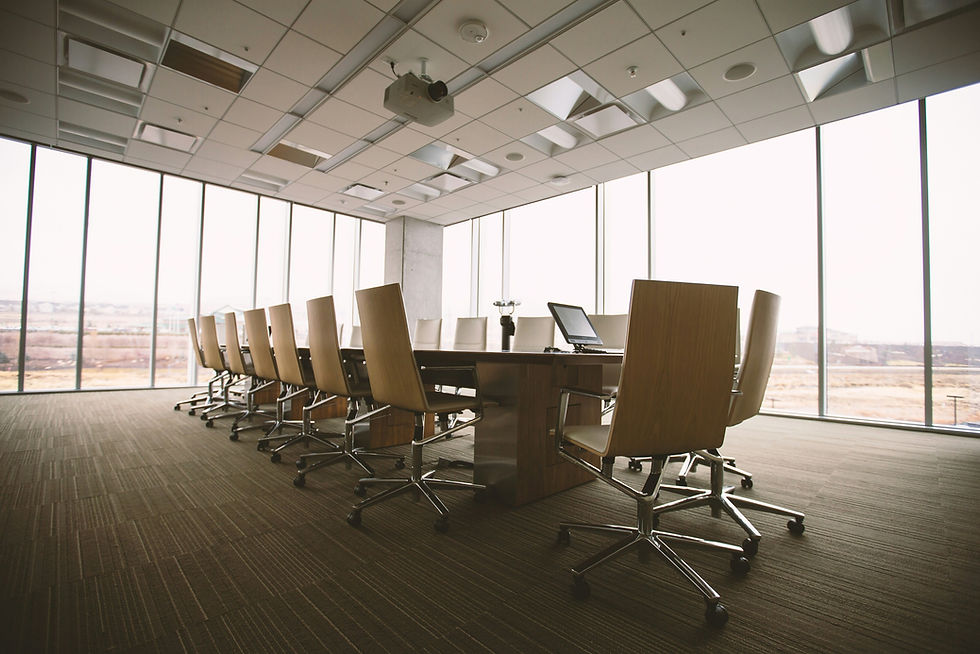How To Fit a Therapy Appointment Into Your Work Day
- Jun 16, 2023
- 4 min read
Updated: Sep 26, 2024
By Sunitha Chandy, PsyD

Photo by Paico Oficial on Unsplash
Traditionally, the most popular times to see a therapist have been after 5pm or on the weekends. Yet today, with the increasing popularity of telehealth, there are fewer barriers to scheduling a therapy appointment during the work day.
Even so, we may be hesitant to schedule an appointment with a therapist when we're 'on the clock.'
We may feel unsure about interrupting your work routine with an appointment or we may not know how to ask our employer for the time off. It may seem inconvenient to schedule a therapy appointment at the start of the day or even in the middle of a workday, but there are surprising benefits to seeing your therapist earlier in the day.
Here are 3 reasons to consider scheduling your next therapy appointment during work hours:
Maximize Your Energy
For those of us saving therapy for the end of the day, we might be dragging ourselves into the appointment exhausted after spending physical and emotional energy surviving a grueling 8-10 hour day.
Having your therapy session earlier in the day means you're coming into this time with more energy and focus for the important things happening in your life. Therapy is a time for you to work on the issues that are holding you back from bringing your best forward, so it makes sense to bring your best self there when you are more able to do that work.
Timing is Everything
In his book “When”, Daniel Pink breaks down the fascinating world of chronobiology, and one of the biggest takeaways for me from the book was the fact that when we do things can impact how potent they are for us. His book highlights that people benefit from doing therapy earlier in the day.
“In the morning, during the peak of our mood and performance, most of us excel at analytic work that requires sharpness, vigilance, and focus. Later in the day, during the recovery, most of us do better on insight work that requires less inhibition and resolve." (Daniel Pink, "When")
We also know that taking breaks during our workday can actually make us more efficient. While it might be hard to pull away from your work for an hour to meet with a therapist, the change of focus might be what your brain needs to help you reengage your work with a fresh perspective, and new tools to handle those stressors.
Benefit for your Employers
Employers are becoming more aware of the significant impact emotional wellness has on their bottom line. Supporting the health of their workforce isn’t just the right thing to do. It creates a healthier work culture and helps us all bring our best selves to work, which means we enjoy our work more and are more productive. Asking for flexibility so you can make therapy work for you is a benefit to your employer as well.
Making it Work
Here are some strategies to schedule therapy during the work day:
Combine your breaks and use them for your therapy appointment.
Ask to start later one day a week or end earlier, 3pm or 4pm slots are often easier to schedule.
Some people worry about rejoining work after an intense therapy appointment - what if something emotional or distressing comes up?
As a therapist, I know not every session ends with my clients feeling great. While your therapist will always work to close sessions with space for you to recenter before you step back into your day, sometimes things do happen that carry over afterward. I see my therapist during my workday (yes, even us therapists see therapists too!). Here are some activities that I use to help me transition and jump back into my work day.
Jot down notes to focus on later that evening when there's more time.
Plan an enjoyable or distracting work activity after a therapy session to more easily shift gears.
I’m an extrovert so a meeting with my leadership team is a great transition because it’s engaging and requires focus for me. For others, it might be a task that is more manual or physical so it requires a different type of focus. For others, even getting up and grabbing a cup of coffee or a quick walk outside can help transition you to jump back into work.
How do I ensure that my therapy session is private if I’m at work?
Privacy is key so make sure you have a space where you can be alone. Many clients use headphones and might even play a sound machine to make it harder for people to hear (like the type people use to drown out noises when trying to sleep).
You might ask to reserve a private room for your meeting if you don’t have an office.
Let's talk about the hard stuff.
Artesian Collaborative is a mental health practice based in Chicago. We excel at guiding individuals and teams through tense and difficult topics - and helping them feel good about it.
Our therapists provide mental health counseling for individuals, couples, and families. Our team also leads corporate and community trainings in the areas of Stress Management, Diversity Equity & Inclusion, and Relational Leadership.



Comments